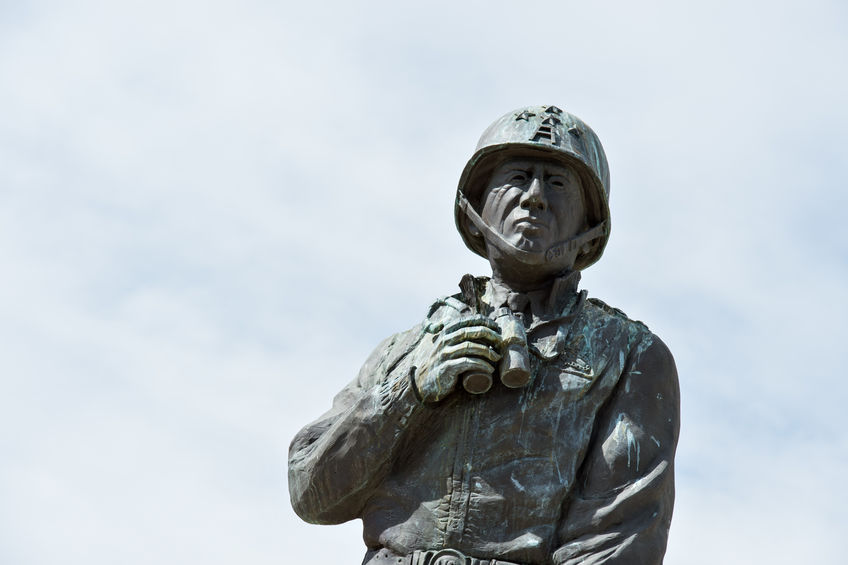Former Vice President Al Gore is at it again.
At the annual World Economic Forum in Davos, Switzerland, held last week, the wealthy Climate Change Celebrity-in-Chief went into a rant comparing global warming to wars and terrorism.
Gore went into shouting-and-gesticulating mode, like a field general charging the hill, when he declared: “[Climate change] is Thermopylae. This is Agincourt. This is Dunkirk. This is the Battle of the Bulge. This is 9/11…we have to rise to this occasion.”
Actually, “This…” is insanity.
As the years pass, Al Gore has gotten more desperate and hysterical on the subject of climate change, now to the point of diminishing and trivializing the lives and sacrifices of soldiers lost in battle and victims of the worst terrorism attack on American soil.
A little climate perspective is in order.
The average global temperature has experienced warm periods in recent years – primarily from natural causes, rather than from “man-made” effects of carbon dioxide. The year 2019 and recent years prior hardly qualify for the “hottest year(s) on record,” though we incessantly hear such trope. In fact, the year-to-year differences in average global temperature have been within the margin of error, and meaningless in terms of any unusual warming trend, as CFACT explains here and here.
For example, recent warm years, including 2002, are more accurately the result of the ocean current effects of the “Super Niño” in the late 1990’s and again in the mid 2010’s. In North America and in Europe, the 1930’s and ‘40’s were warmer than in the 1980’s and ‘90s; and the average global temperature has largely remained stable from its late 1990’s peak.
Climate history viewed from a longer-term perspective should provide a much greater context for present-day debates on global warming.
Since Al Gore name-dropped ancient world battles, it is worth perusing climate history from long ago. To get our historical bearings, the battle of Thermopylae occurred in 480 B.C. when the Persian Empire of Xerxes I defeated the alliance of Greek city-states lead by King Leonidas of Sparta. Nearly one millennium later was the battle of Agincourt, when English King Henry V’s outnumbered army defeated the French in 1415 during the Hundred Years War.
As CFACT explains, the planet experienced the Minoan Warm Period prior to 1000 B.C., the Roman Warm Period from about 250 B.C. to 400 A.D., and the Medieval Warm Period from around 950 to 1250. This latter warming coincided with the Vikings colonizing Greenland when it was way more green than the present day. The Little Ice Age followed from about 1550 to the mid to late 1800’s.
In other words, throughout recorded history, Earth has warmed and cooled on its own. No SUVs, airplanes, oilrigs, or air-conditioned mega-mansions occupied by climate change activists like Al Gore and Leo DiCaprio were around to influence the climate trajectory.
It follows that the climate situation of today and of tomorrow, contrary to Al Gore’s battle cry, is not the equivalent of 2,977 victims from the terrorist attacks on September 11, 2001, and the resulting crisis.
Climate change, man-made or natural, is not the same as the peril of Dunkirk in 1940, when the retreating British army, having already lost tens of thousands of men, narrowly escaped obliteration from the advancing Nazis who were overrunning the continent of Europe.
The vicissitudes of today’s global climate and temperature do not compare to the Battle of the Bulge, when thousands of American soldiers were surrounded and trapped by the Nazis. It took 500,000 troops, including General George Patton’s Third Army, to prevail in early 1945 in this last major battle of World War II against the Germans — a battle that cost nearly 30,000 American lives killed or missing.
Understanding climate history and trends is not an argument against conservation, energy efficiency, cleaning plastic waste from the oceans, or developing cleaner energy technologies. Rather, it is to understand there is nothing necessarily unique going on today with the planet’s temperature, much less the need for a drastic reordering of the economy and our way of life.
The call-to-arms on climate is overkill. Hysterics like Al Gore should spare us the General Patton pretension, and let cooler heads prevail.
